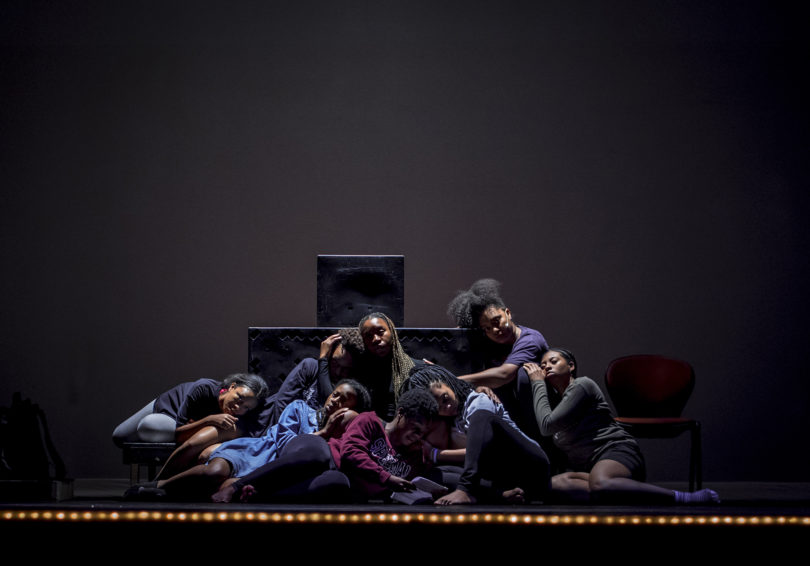UGA Theatre presents By Our Hands from The Georgia Incarceration Performance Project, directed by Amma Y. Ghartey-Tagoe Kootin, Emily Sahakian, Julie B. Johnson and Keith Bolden. Open free to the public, performances are Nov. 8 and 16 at 8 p.m. and Nov. 10 and 17 at 2:30 p.m. in the Fine Arts Theatre at 255 Baldwin St.
The production is a first-of-its-kind, cross-institutional collaboration between faculty, students and alumni at the University of Georgia and Spelman College of Atlanta and Common Good Atlanta, an organization that teaches college-level courses in prisons across Georgia. Developed through several courses in university-level curricula and in the production seasons of three departments, students and faculty from Spelman, UGA and incarcerated students of Common Good Atlanta generated original writing, composed songs, choreographed scenes and engaged in critical reflection on the history of incarceration in the state of Georgia.
In a joint statement, the directors pose the questions, “How do we gather a community of Georgia residents to openly look at and discuss the state’s difficult past (and present)? How do we honestly negotiate our own relationship to incarceration, issues of race and the impact of forced labor on our everyday experiences as Georgians? One answer we suggest is that we turn to performance.”
Through the use of dance, original and historical music, projections and interpretive performance, the team behind By Our Hands has created a wholly unique theatrical experience aimed at interrogating this crucial aspect of Georgia history.
The project brings together a diverse array of people and entities around the Georgia incarceration story to have a conversation, engage ethically and learn from this history and its impact on residents’ everyday lives. Close by is the Hargrett Library’s exhibition The New South and New Slavery: Convict Labor in Georgia, a new exhibit chronicling the history of forced prison labor in the state of Georgia.
For the first time in at least 30 years, UGA Theatre is not charging admission for a season production.
“We felt that it was vital that everyone be able to attend this production, including people who may never before have set foot on the UGA campus,” said David Saltz, head of the theatre and film studies department in Franklin College. “This piece draws heavily on the stories of real people who experienced unspeakable exploitation and denigration, and we wanted to respect their contribution to the project by avoiding even the appearance that we were profiting from their suffering.”
UGA Theatre relies on box office revenue to fund its production costs and is able to waive the ticket charge as the result of contributions from the Ferman Fund, the McCay Fund and the Franklin Excellence Fund specifically for this purpose. This project was made possible with the additional support from The Andrew W. Mellon Foundation through the Global Georgia Program of the Willson Center for Humanities and Arts and a faculty research grant from the Office of Research. From Spelman College, it is supported by the Doris Duke Charitable Foundation, the dance performance & choreography department and the theatre & performance department.
More information about the performance can be found at ugatheatre.com/gaproject.
The performance is part of UGA’s Spotlight on the Arts, scheduled for Nov. 6-17. Presented by the University of Georgia Arts Council, Spotlight on the Arts includes dozens of exhibitions and performances in the visual, literary and performing arts. Many of the events are free or discounted for UGA students, and the annual Spotlight on the Arts Family Day will be presented free of charge Nov. 16.
More information on the 2019 Spotlight on the Arts festival, including a schedule of events, can be found at arts.uga.edu as well as on the Arts Council Facebook page (facebook.com/UGAarts), Twitter feed (@UGA_arts) or Instagram (instagram.com/uga_arts).








